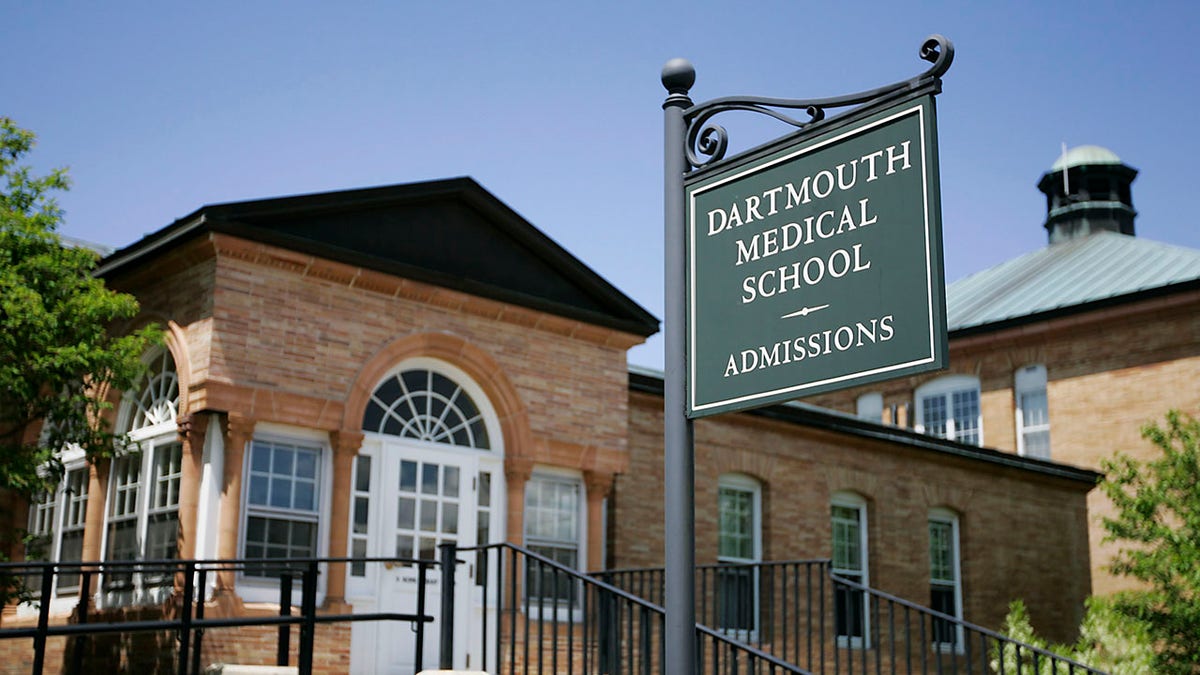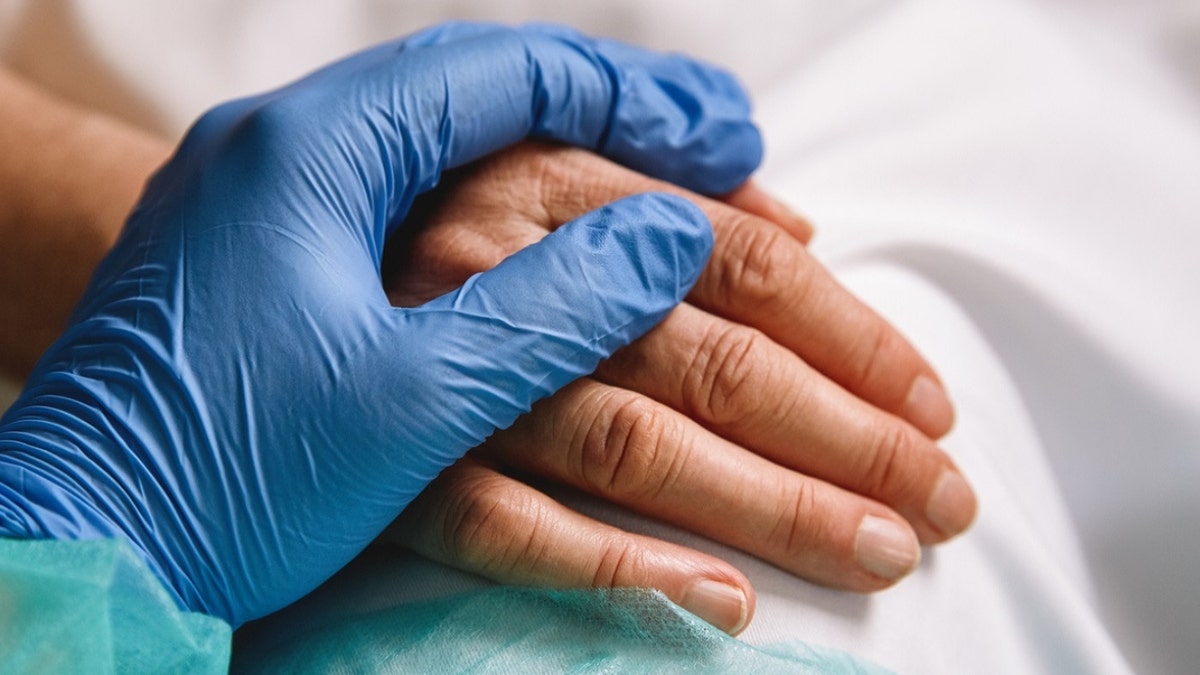'Woke' medical school students challenge male, female terminology
Harvard professor Carole Hooven joins ‘Fox & Friends’ to discuss ideology vs. education in America’s medical schools.
Medical school applications and enrollments skyrocketed to record highs during the 2021-22 school year across the US, especially among underrepresented minorities, according to the Association of American Medical Colleges (AAMC).
Applications typically rise and fall by 2% or 3% for the past 20 years, but for the 2021-22 season, they increased by 17.8%, with 62,443 total applicants eclipsing the previous record of 53,370 in 2019-20, according to the AAMC.

Close up of woman doctor hands using digital tablet at clinic. Closeup of female doctor in labcoat and stethoscope holding digital tablet, reading patient report. (iStock)
Out of the over 22,000 students who enrolled in medical schools this fall, there was a 21% increase in those who self-identified as Black or African American, an 8.3% increase among Asian students, and 7.1% among those of Hispanic, Latino, or Spanish origin, per the AAMC.
The association added there’s no single reason for the massive influx and interest in medicine.
"I don’t think anybody knows why," said Dr. Kevin Holcomb, associate dean of admissions at Weill Cornell Medicine Medical College, where he saw a 15% increase in applications.
During the pandemic, the AAMC added that many applicants adopted the philosophy "an optimist sees the opportunity in every difficulty" as many students couldn’t do the activities that schools typically recommend before applying to medical schools, like shadowing doctors, doing internships, or working in a health care setting.

medicine and healthcare concept. doctor and patient talking about diagnose disease treatment at doctors office. (iStock)
MED STUDENTS RESCUE PASSENGER MID-FLIGHT DURING MEDICAL EMERGENCY
Admissions leaders believe the pandemic motivated more students who dreamed of becoming a doctor "someday" to apply "now" as COVID-19 exposed social injustices in our health care system and also forced schools to eliminate travel to medical school interviews, which is typically very costly, the AAMC also added.
But admissions leaders don’t attribute the increase interest to the "hero" or "Fauci effect," where students are inspired from witnessing overwhelmed health care workers caring for very sick patients or from admiring Dr. Anthony Fauci, director of the National Institute of Allergy and Infectious Diseases.

UNITED STATES - JUNE 02: A sign stands outside the Dartmouth Medical School admissions office on the campus of Dartmouth College, the smallest school in the Ivy League, in Hanover, New Hampshire, U.S., on Tuesday, June 2, 2009. (Photo by Cheryl Senter/Bloomberg via Getty Images) ( Cheryl Senter/Bloomberg via Getty Images)
The surrounding events during these trying times instead nudged those "sitting on the fence" to finally apply to med school, Holcomb explained.
CLICK HERE TO GET THE FOX NEWS APP
The large increase in applications, however, increased the competition to become a doctor, because medical schools could not expand their class sizes to match the demand, due to multiple barriers from physical space, equipment and teachers, to finding appropriate training sites for clinical rotations, so the number of students accepted only increased by 2.6%.
"This class of students is very concerned with issues of equity and justice," Holcomb reminded. "The pandemic shined a light on health care disparities. That could motivate somebody who says, ‘I want to make a difference in the world. What’s a pathway for doing this?’"

Close up of a doctor hand with blue glove giving support and love to a patient at hospital. Coronavirus pandemic concept. (Credit: iStock)
Click here for more application data on the AAMC website.










































